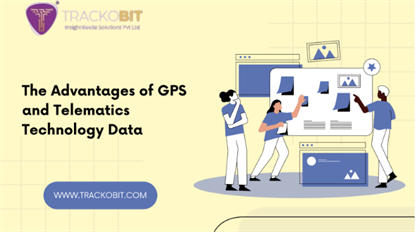
Introduction
The advent of Artificial Intelligence (AI) has brought about transformative changes across various industries, and education is no exception. In recent years, AI Tools and technologies have been increasingly integrated into educational systems and training programs, revolutionizing the way we learn, teach, and acquire new skills. This blog explores the profound impact of AI on education and training, examining its applications, benefits, challenges, and future prospects.
Defining AI in Education
AI in education refers to the use of artificial intelligence technologies, such as machine learning, natural language processing, and robotics, to enhance teaching and learning experiences. These technologies enable personalized learning, adaptive assessment, intelligent tutoring systems, and data-driven decision-making in education.
Types of AI Applications in Education
- Personalized Learning: AI algorithms analyze student data to create customized learning paths tailored to individual needs, preferences, and learning styles.
- Adaptive Learning Systems: These systems dynamically adjust the difficulty and pace of learning materials based on students' performance and progress.
- Intelligent Tutoring Systems (ITS): ITSs provide real-time feedback, guidance, and assistance to students, simulating the role of a human tutor.
- Educational Content Creation: AI tools generate educational content, such as quizzes, exercises, and interactive simulations, based on curriculum requirements and learning objectives.
- Virtual Reality (VR) and Augmented Reality (AR): AI-powered VR and AR technologies create immersive learning environments, enhancing engagement and comprehension.
Benefits of AI in Education
Enhanced Personalization
AI-driven adaptive learning platforms cater to each student's unique needs, allowing for personalized instruction and remediation. This personalized approach improves learning outcomes and student satisfaction.
Improved Learning Outcomes
By providing immediate feedback, intelligent tutoring systems help students identify and address learning gaps more effectively, leading to better academic performance and mastery of concepts.
Increased Access to Education
AI-powered educational tools and platforms enable remote learning, making education more accessible to individuals in remote areas, underprivileged communities, and those with disabilities.
Efficient Resource Allocation
AI algorithms analyze large datasets to optimize resource allocation, such as staffing, scheduling, and budgeting, thereby maximizing the efficiency and effectiveness of educational institutions.
Facilitation of Lifelong Learning
AI-based learning systems promote lifelong learning by offering personalized, on-demand education and training opportunities tailored to individuals' evolving needs and interests.
Challenges and Considerations
Data Privacy and Security
The use of AI in education raises concerns about data privacy and security, as student data may be vulnerable to breaches, misuse, and unauthorized access. Educational institutions must implement robust security measures and comply with relevant regulations, such as the GDPR and FERPA, to protect student privacy.
Ethical and Bias Issues
AI algorithms may perpetuate biases and inequalities in education, such as gender, racial, and socioeconomic biases, if not properly designed and calibrated. Educators and developers must address these ethical concerns and strive for fairness, transparency, and inclusivity in AI systems.
Human-Computer Interaction
While AI technologies can enhance learning experiences, they cannot replace human teachers' expertise, empathy, and interpersonal skills. Balancing the use of AI with human intervention is essential to ensure holistic and effective education.
Digital Divide
The digital divide exacerbates disparities in access to AI-powered educational resources and technologies, particularly among underserved populations. Bridging this gap requires investment in infrastructure, connectivity, and digital literacy programs.
Future Trends and Outlook
AI-Powered Learning Analytics
Advancements in learning analytics, fueled by AI, will enable educators to gain deeper insights into students' learning behaviors, preferences, and performance patterns, facilitating evidence-based decision-making and targeted interventions.
Augmented Intelligence
Augmented intelligence, which combines the strengths of AI and human intelligence, will play a crucial role in education, empowering educators to harness AI technologies to enhance teaching effectiveness, creativity, and collaboration.
Personal AI Assistants
Personal AI assistants will become ubiquitous in education, supporting students, teachers, and administrators with administrative tasks, content recommendations, and learning support services.
Ethical AI Education
There will be a growing emphasis on integrating ethical AI education into curricula to cultivate students' awareness, critical thinking, and responsible use of AI technologies in education and beyond.
Conclusion
AI is revolutionizing education and training by enabling personalized learning experiences, improving learning outcomes, increasing access to education, and optimizing educational resources. Despite the numerous benefits, challenges such as data privacy, bias, and the digital divide must be addressed to ensure equitable and ethical deployment of AI in education. Looking ahead, AI-powered innovations will continue to reshape the educational landscape, empowering learners and educators to thrive in an increasingly complex and dynamic world.
You Might Like Also

Key Benefits of Headless Commerce for Scalable eCommerce Solutions

The Ultimate Guide to Organizing Your Business with Planners

The Advantages of GPS and Telematics Technology Data

Why Cloud-Based POS Systems are Revolutionizing Retail Management

Measuring the Impact of Influencer Collaborations on Your Business

The Evolution of Shoes from Ancient Times to Modern Fashion














